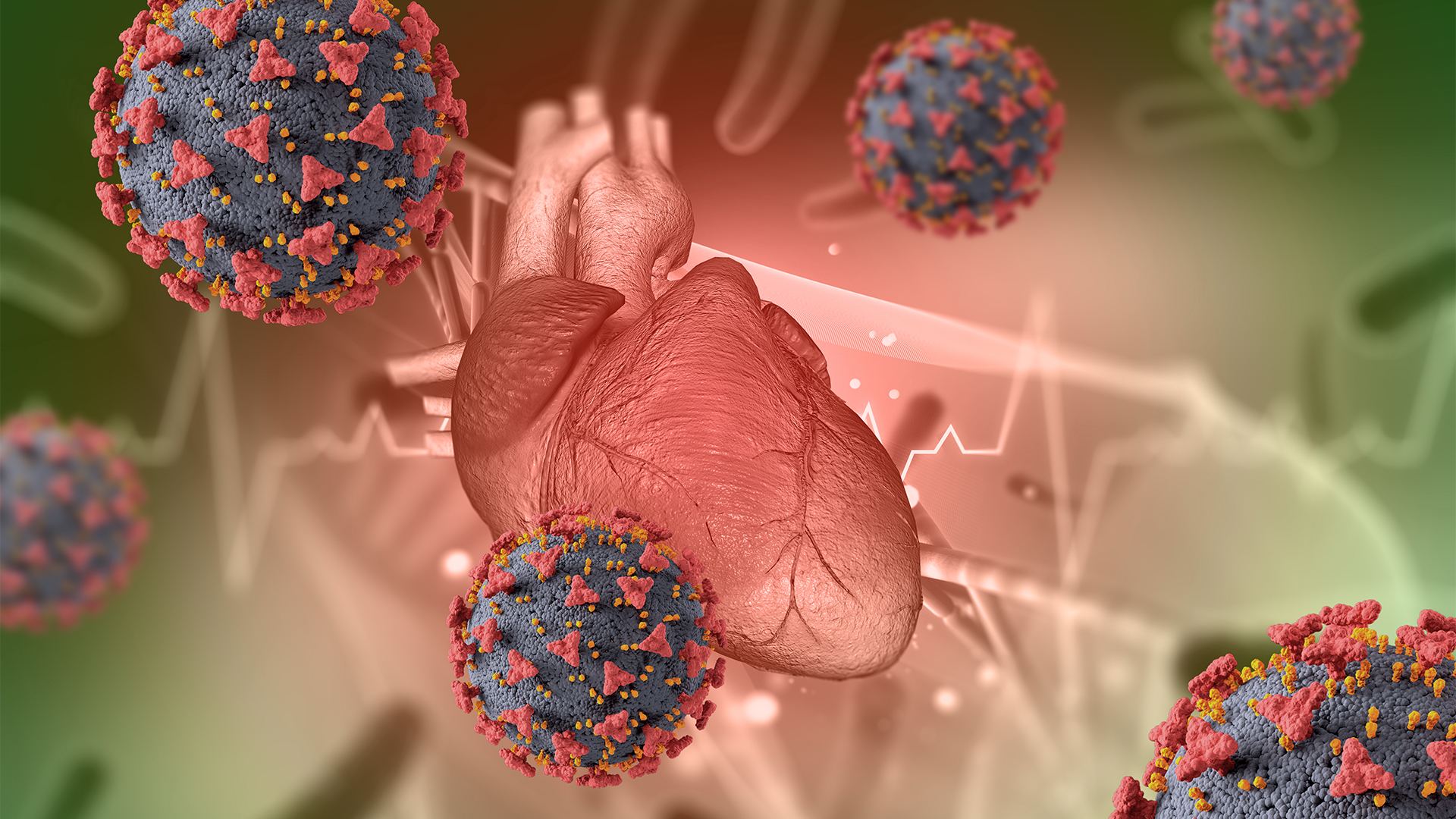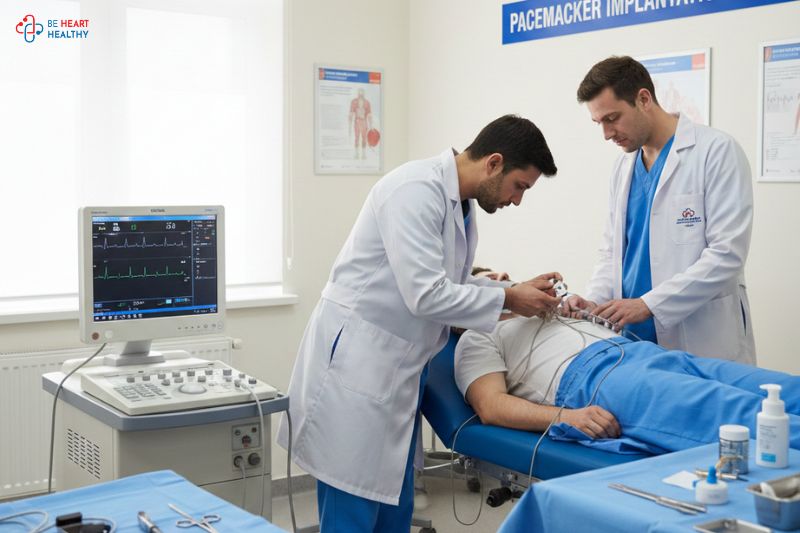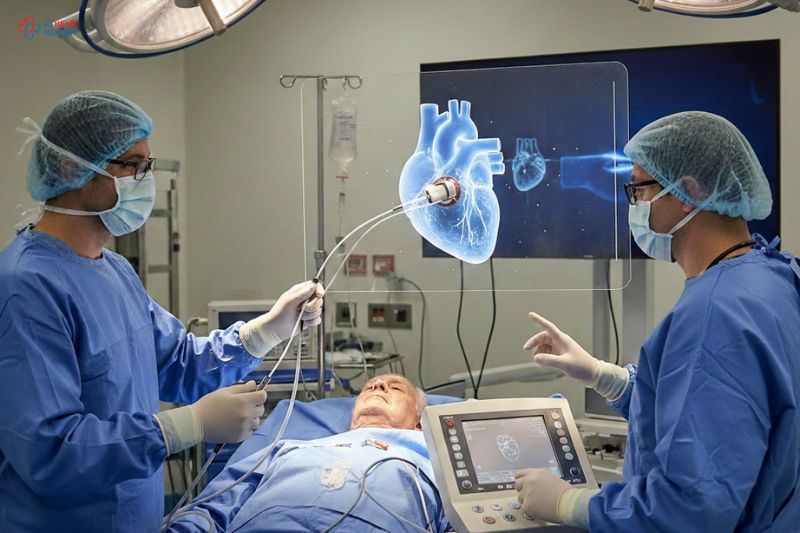No event in the 21st century so far was more destructive than what the “COVID-19 pandemic” has done to the world. Killing people by the hundreds of thousands, stealing loved ones away before their time, and decimating people’s livelihoods, this virus is ruthless. It does not discriminate based on wealth or ethnicity.
It’s common knowledge that COVID-19 more severely affects people with underlying conditions (comorbidities). Out of these comorbidities, perhaps the most prevalent one is cardiovascular disease (CVD). According to a study published in 2018, 1 in 10 women and 2 in 10 men in India between the ages of 30-74 will suffer from a Cardiovascular Disease.
How does COVID-19 affect people suffering from comorbidity as prevalent as CVD? Furthermore, if you are healthy and fit, does it mean that COVID-19 may not affect your heart health?
COVID-19: A Simple Summary
COVID-19 (SARS- CoV 2) is a viral disease that is said to have originated from China and has caused a global pandemic since the year 2020. It is a respiratory virus that infects our lung tissue and gives rise to symptoms like fever, dry cough, and tiredness. In more severe cases, symptoms may be shortness of breath or difficulty breathing, chest pain, and even loss of speech or movement. You can be tested for COVID-19 by taking a PCR test or a Rapid Antigen test.
Currently, there is no clear treatment for COVID. Treatment is mostly based on relieving symptoms and providing support. For most, COVID is a mild disease. Unfortunately, the elderly, smokers, and patients with CVDs are at an increased risk of losing their lives to COVID-19. 2
I have a history of heart disease. How will COVID affect me?
Cardiovascular disease ranges from a heart attack to hypertension. It is important to pay attention to the health of your heart and the rest of your cardiovascular system as you grow older because as you age, the likelihood of developing these conditions increases.
A history of heart disease significantly increases the likelihood of developing severe symptoms from COVID. Your doctors will use more medication to manage your symptoms and also increase the likelihood of severe complications like acute respiratory distress syndrome (a condition where the patient is unable to get enough oxygen from the air), acute kidney injury, electrolyte disturbances, and coagulation disorders. 3 Other studies list complications such as malignant arrhythmias (changes in your heart rate that are quite deadly) and ventricular tachycardia (fast, abnormal heart rate that is life-threatening if untreated). 4
A normal healthy individual free of cardiovascular conditions will have a 2.3% fatality rate. However, for a person with an underlying cardiovascular condition, this percentage jumps to up to 10.5%4.

What can I do to face COVID, even with a history of heart disease?
These facts shouldn’t be cause for despair, dear reader. Instead, they should motivate you to take control of your heart health and take steps to get better with treatment and lifestyle alterations.
Many cardiovascular diseases have effective treatment options. and it’s up to you to seek help and advice from a cardiologist – a heart specialist, in conditions related to your heart and blood vessels; to help treat any conditions you may have. They will advise you on precautions and lifestyle changes to significantly reduce the possible effects if you were to get COVID. Remember, keeping your health in check is an excellent way to mitigate the above-mentioned risk.
The best treatment is prevention. As you now understand the possible severity of COVID for patients with CVD, the best step you can take is to stay safe by social distancing and wearing a mask outdoors at all times.
I am a healthy person. Could COVID affect my heart health?
Yes, it can. The cardiovascular system and the respiratory system that COVID-19 attacks are very closely linked. Though the risks are somewhat less than CVD patients, you could develop a CVD such as hypertension (high blood pressure), persistent tachycardia (an elevated heart rate), and in some cases, even myocardial injury (damage to heart muscle cells) following a COVID-19 infection. 3,5
Parting Words
All these information converge at one crucial junction. Amidst all the prevailing uncertainty, we should be more attentive to our heart health, pursuing healthier lifestyles than before.
References
- Geldsetzer P, Manne-Goehler J, Theilmann M, et al. Geographic and sociodemographic variation of cardiovascular disease risk in India: A cross-sectional study of 797,540 adults. PLoS Medicine. 2018;15(6). doi:10.1371/journal.pmed.1002581
- Li X, Li T, Wang H. Treatment and prognosis of COVID-19: Current scenario and prospects (Review). Experimental and Therapeutic Medicine. 2020;20(6):1-1. doi:10.3892/etm.2020.9435
- Shi S, Qin M, Shen B, et al. Association of Cardiac Injury with Mortality in Hospitalized Patients with COVID-19 in Wuhan, China. JAMA Cardiology. 2020;5(7):802-810. doi:10.1001/jamacardio.2020.0950
- Guo T, Fan Y, Chen M, et al. Cardiovascular Implications of Fatal Outcomes of Patients with Coronavirus Disease 2019 (COVID-19). JAMA Cardiology. 2020;5(7):811-818. doi:10.1001/jamacardio.2020.1017
- Wu L, O’Kane AM, Peng H, Bi Y, Motriuk-Smith D, Ren J. SARS-CoV-2 and cardiovascular complications: From molecular mechanisms to pharmaceutical management. Biochemical Pharmacology. 2020;178:114114. doi:10.1016/j.bcp.2020.114114



